
Budget-Friendly Gardening Hacks That Actually Work
Published: 06/10/2024 | Updated: 04/10/2024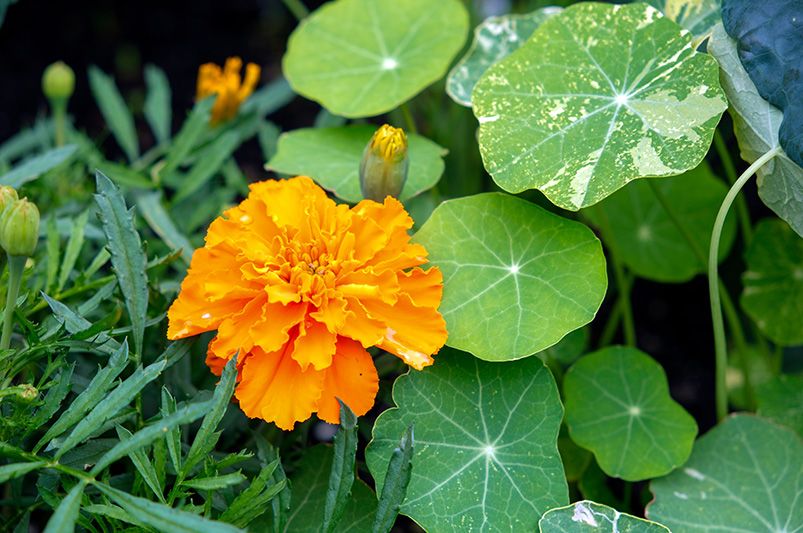
Key Highlights
- Discover cost-effective ways to enjoy gardening without breaking the bank.
- Learn how to create DIY seed starting pods, mini-greenhouses, and organic fertilizers.
- Explore natural pest control methods like companion planting and DIY insecticides.
- Find out how to reuse everyday items like newspapers, water bottles, and coffee grounds for gardening.
- Uncover the secrets of propagation, seed saving, and rainwater harvesting to stretch your gardening budget further.
- Get ready to enjoy a lush and thriving garden while saving money with these practical and effective hacks.
Introduction
Starting your journey in gardening as a beginner can be exciting and easy on your wallet. Taking care of seedlings and watching them grow into healthy plants is a rewarding experience. By using smart tips and creative ideas, you can build a lovely garden while saving money and keeping the soil moist. Let’s look at some helpful gardening hacks that will help you create a beautiful and rich outdoor space without spending too much.


Budget-Friendly Gardening Hacks for Thrifty Gardeners
Gardening doesn’t have to be costly. There are many ways to save money while making a stunning garden. With a bit of creativity, you can use budget-friendly tricks that keep your garden thriving without spending a lot.
You can start your seeds at home and reuse items you already have. These ideas are smart choices instead of buying costly gardening items. Whether you have been gardening for years or are just beginning, these tips will motivate you to garden on a budget. You can get great results without spending too much.
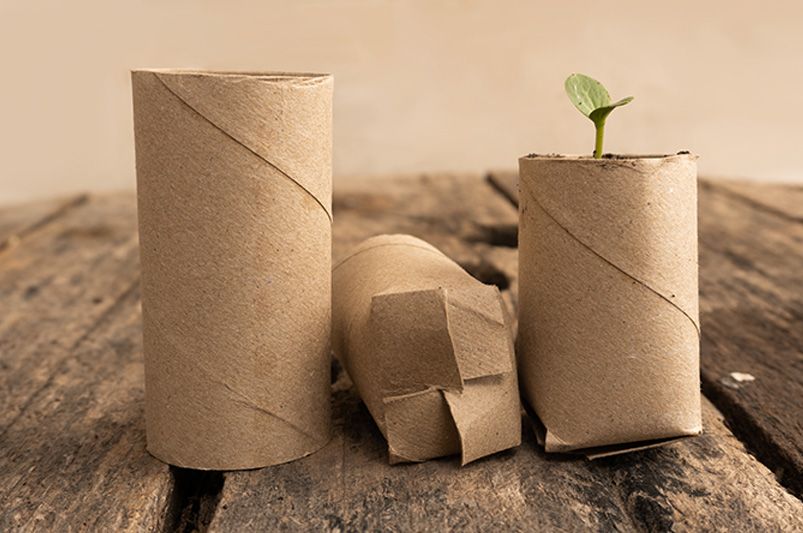
Craft Seed Starting Pods from Recycled Paper
Give those young seedlings a great start by making biodegradable seed-starting pods with toilet paper rolls. These DIY pods help your seeds grow, and the best part is they are free!
Take cardboard tubes from used toilet paper rolls or paper towels. Cut the tubes into sections that are about 2-3 inches long. Then, close the bottom of each section by folding the cardboard inwards. Fill these homemade pots with a seed-starting mix. Sow your seeds as per the seed packet instructions, and water them gently.
When your seedlings grow too big for the pods, you can simply plant them in your garden. The cardboard will break down naturally, adding good nutrients to the soil and giving your plants a great start.
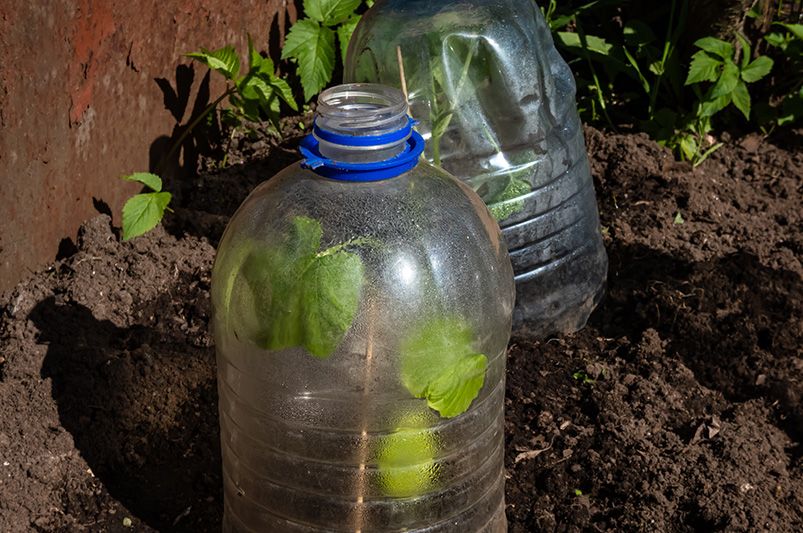
Build a Mini-Greenhouse Using Recycled Containers
Don't toss out those plastic water bottles! They can be used again as small greenhouses for your tender plants. These DIY greenhouses are very easy to make. They give a warm and humid space, great for starting seeds or keeping young plants safe from sudden cold weather.
- Cut the bottom off a plastic water bottle. Make sure the top part is big enough to cover your plant well.
- Take off the cap and set the bottle over your plant. Press it down gently into the soil to create a seal.
This easy setup can really help your plants grow at first. It protects them from strong winds or quick drops in temperature. The bottle works like a small greenhouse, holding in heat and moisture. Don't forget to take off the cap for airflow on warmer days.
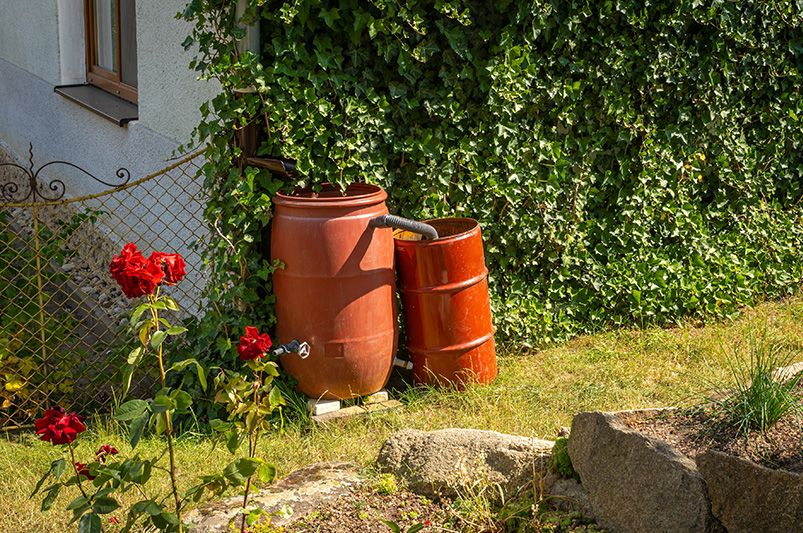
Collect and Use Rainwater with DIY Rain Barrels
Why pay for water when nature gives it to us for free? Collecting rainwater is a great way to save water and give your plants a drink full of nutrients. You don't need a big setup to gather rainwater; a simple DIY rain barrel or some containers will work just fine.
Find a big container, like a trash can or a plastic barrel, and place it near a downspout to catch the rainwater. You can also use smaller buckets or containers – every drop is valuable! Drill a hole near the bottom of the container and add a faucet for easy access.
You can use the rainwater you collect to water your plants, giving them a nice drink full of natural minerals and nutrients.
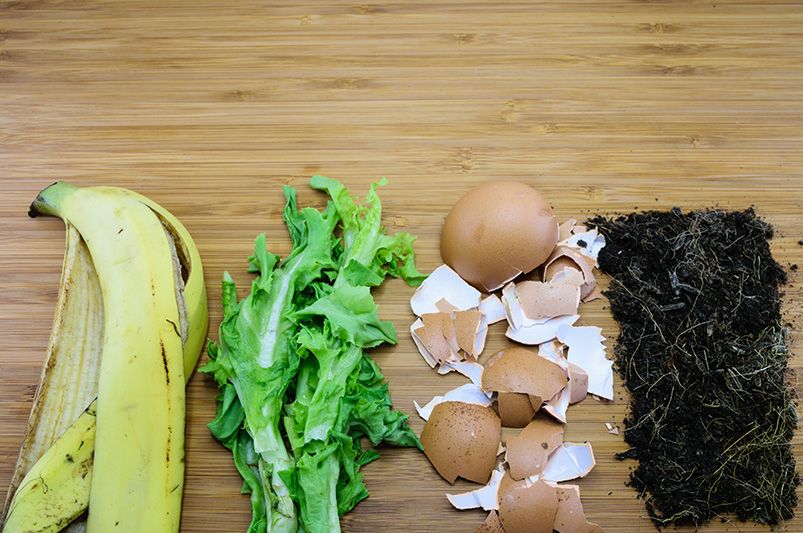
Create Your Own Organic Fertilizers at Home
Skip expensive store-bought fertilizers. Instead, try homemade organic fertilizers that are good for your garden and budget. Many kitchen scraps and yard waste can become nutrient-rich fertilizers. Coffee grounds are a great example of this.
Coffee grounds are full of nitrogen. They can really help your garden. Just sprinkle used coffee grounds around your plants and mix them lightly into the topsoil. They will slowly release nitrogen. This promotes healthy leaves and improves the soil.
You can also think about composting. Composting turns kitchen scraps and yard waste into something valuable. A compost pile changes organic materials into rich soil that gives your plants the nutrients they need over time.
Implement Companion Planting to Reduce Pests Naturally
Keeping pests away without using chemical pesticides is a great way to protect your garden and your family’s health. Companion planting is a natural method that helps with pest control. It uses the placement of different plants to keep pests away and attract helpful insects.
The idea is simple. Some plants can repel certain pests. Other plants can attract good insects that eat these pests. For instance, planting marigolds with your vegetables can stop common pests like aphids and nematodes. The strong smell of marigolds hides the scent of veggies. This confuses pests and makes them look for better food elsewhere.
By learning how different plants work together, you can build a natural system in your garden. This system will keep pests away without putting harmful chemicals into the ground.
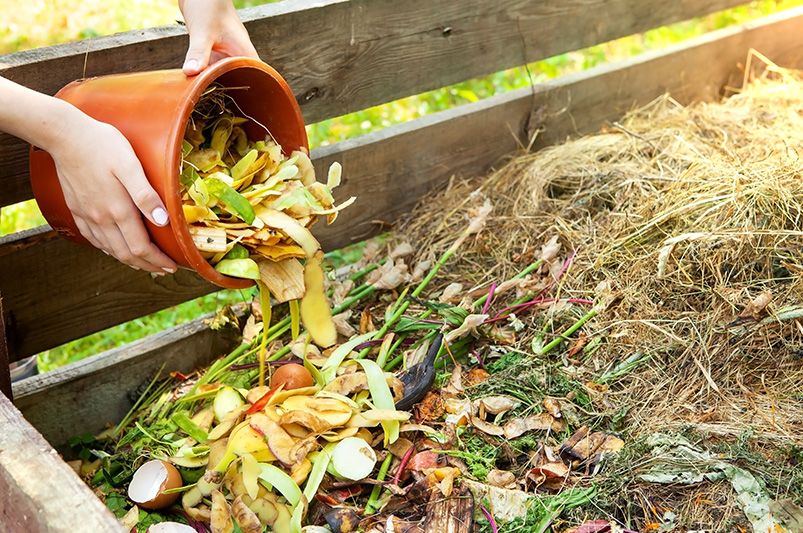
Start Composting to Enrich Soil Without Cost
One of the best and inexpensive things you can do for your garden is to start composting. It feels like making black gold right in your backyard! Composting changes kitchen scraps and yard waste into healthy soil that makes the ground better, holds water, and helps plants grow.
To begin a compost pile, gather organic stuff like fruit and vegetable peels, coffee grounds, eggshells, leaves, and grass clippings. Do not add meat, dairy, or oily foods to your compost. These can attract pests and do not break down well.
Mix these materials by layering brown (high in carbon) and green (high in nitrogen) items in a bin or pile. Make sure it has good air and moisture. After some time, the organic matter will break down and turn into food-rich compost. You can then use this finished compost in your garden beds. It will improve the soil and help your plants grow stronger.
Use Old Newspapers for Weed Control
Before you throw away those old newspapers, think about how they can help control weeds. Old newspapers can be very useful in keeping weeds out of your garden beds. This means you won't have to spend as much time weeding or buy expensive herbicides.
By putting layers of newspaper between your plants, you block sunlight. This will stop weeds from growing.
To use this method, first wet the newspaper well. Then, stack several sheets together to stop weeds effectively. Finally, cover the newspaper with mulch, like wood chips or straw. This will help keep it in place and make your garden look nicer.
Make a DIY Drip Irrigation System from Recycled Bottles
Consistent watering is very important for keeping plants healthy, especially in hot summer months. You can easily make a DIY drip irrigation system using old bottles. This method will help deliver water straight to your plants' roots. It also saves water and keeps the soil moisture just right.
- Gather empty plastic bottles and poke a few small holes around the sides.
- Bury the bottles close to your plants, letting the neck and cap stick out of the soil.
When you need to water, just fill the bottles. The water will slowly flow out through the holes and reach the roots. This way, it cuts down water evaporation and feeds the roots directly. It helps roots grow deep and reduces water waste.
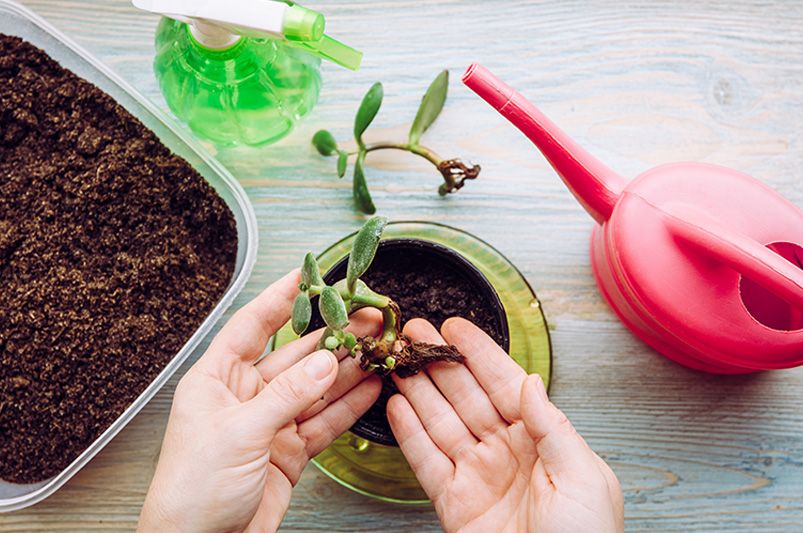
Propagate Plants from Cuttings Instead of Buying New Ones
Instead of buying new seedlings, why not try plant propagation? You can easily grow many plants from cuttings. This is a cheap way to grow your garden without spending any money.
First, find healthy stems on your plants. Use clean, sharp pruning shears to take some cuttings. Remove the lower leaves, but keep a few on the top. You can dip the cut end in rooting hormone if you want to help them grow roots. Then, place the cuttings in well-draining potting mix or water.
If you take good care of them, these cuttings will grow roots and turn into new seedlings. They will look just like the original plant. This is a smart and fulfilling way to grow your plant collection!
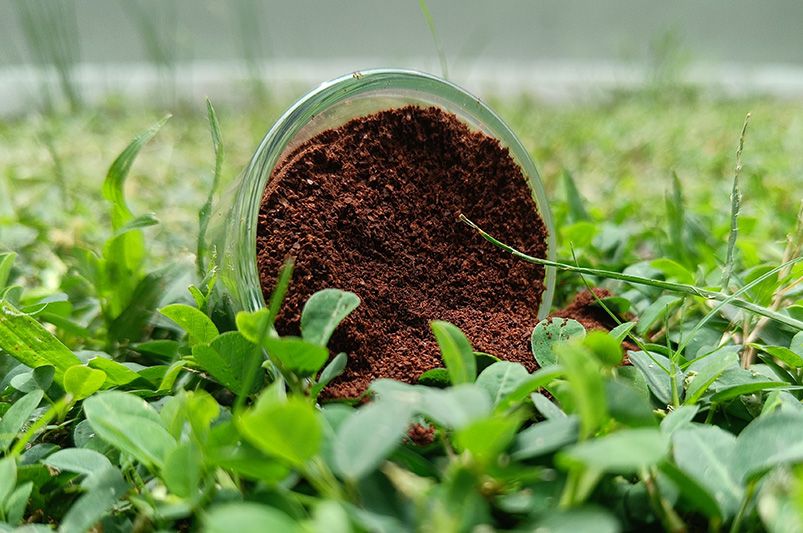
Reuse Coffee Grounds to Acidify the Soil for Acid-Loving Plants
If you love coffee and grow acid-loving plants like blueberries, rhododendrons, or azaleas, you're in luck! Used coffee grounds can be great for your soil. They help lower soil pH and add important nutrients that these plants need to grow well.
These plants do best in soil that is more acidic, and coffee grounds can help with that. You can sprinkle the used coffee grounds around the base of your plants and mix them lightly into the topsoil. As the grounds break down, they will give off organic matter, nitrogen, and other nutrients while slightly making the soil more acidic.
Just remember to use coffee grounds carefully. Too many can make the soil too acidic. It's good to keep an eye on your soil pH to make sure it stays at the right level for your acid-loving plants.
Use Natural Methods to Deal with Slugs and Snails
Slugs and snails can cause a lot of damage really fast. They can make your lovely hostas look like Swiss cheese overnight. Luckily, there are some good natural ways to protect your plants. These methods work without hurting helpful insects or wildlife.
One method is to create a barrier. You can use crushed eggshells and sprinkle them around plants that need protection. The sharp edges of the eggshells keep slugs and snails away. They find it hard to climb over them.
Another way is to set up a "beer trap." You do this by burying a shallow dish filled with beer in your garden. Slugs are drawn to the yeast in beer and will crawl in, but then they get stuck. Remember to empty and refill the dish often to keep it working well. These are just two easy ways to control these pests without using harsh chemicals.
Opt for Perennial Plants to Save Money in the Long Run
While bright annual flowers are nice, using perennial plants in your garden can save you money in the long run. Perennials grow back every year, while annuals only last one season. So, once you plant perennials, they keep returning with beauty and strength.
Pick different types of perennials that grow well in your area and bloom at various times. This will help you create a garden that looks great throughout the year. Many perennials can be divided after they grow, so you can spread them around your garden at no extra cost.
By choosing to plant perennials, you won’t have to spend money on new plants each year. This smart choice makes gardening easier and helps the environment, improving biodiversity in your garden space.
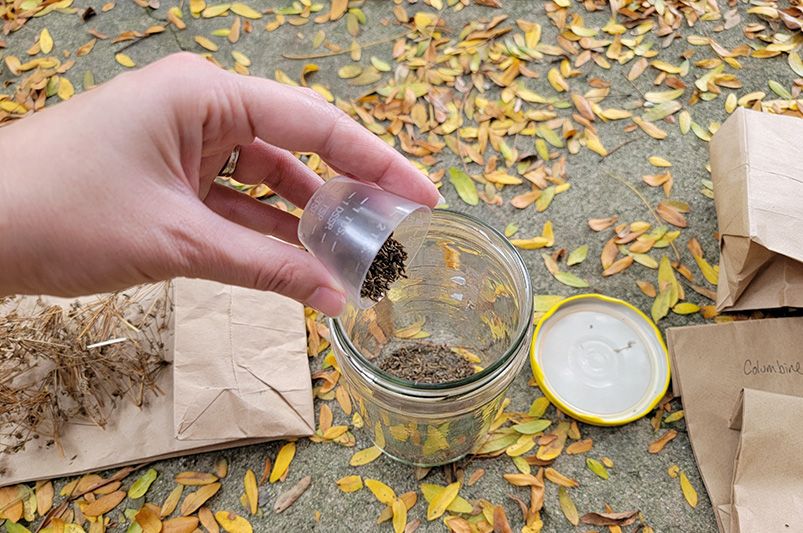
Practice Seed Saving Techniques for Future Plantings
Seed saving is a traditional way of gardening. It gives you a feeling of success and helps you to keep your favorite plants growing. You can gather seeds from your garden and store them properly. This means you won't have to buy new seeds every year.
When your plants grow and flower, look for ones that create seed pods. Once the pods are dry and brittle, usually after the flowers fade, you can collect them. Take the seeds out and let them dry completely. After that, put them in airtight containers or envelopes.
Keep your seeds in a cool, dry place until next planting season. Make sure to label your seeds with their names and the date you collected them. Some seeds can last for years if stored the right way.
Conclusion
Gardening can be done without spending a lot of money! Here are some easy tips to help you grow a beautiful garden while saving cash. You can make seed pods and collect rainwater. Each idea is good for the earth and your wallet. When you use these tips, you save money and help the environment too. So, get ready to work, be creative, and enjoy your garden’s growth without emptying your bank account. Also, share these tips on social media to help others start their own budget-friendly gardening journey!
Frequently Asked Questions
What Are Some Effective, Natural Pest Control Methods for Gardens?
Effective and natural ways to control pests in gardens include:
- Planting compatible plants together.
- Attracting helpful insects like ladybugs and lacewings.
- Using insecticidal soap sprays.
- Setting up barriers with diatomaceous earth or copper tape to keep pests away.
How Can I Start a Garden with Limited Space and Budget?
If you want to start a garden but have little space and money, think about vertical gardening. You can use recycled containers such as buckets or crates. Stick to easy-to-grow plants like lettuce and herbs. You might even create a small salad bar in window boxes.
Can Homemade Compost Replace Store-Bought Fertilizers?
Homemade compost is a great option. It is full of nitrogen, phosphorus, and other important nutrients. You can use it instead of many store-bought fertilizers. Compost is made from broken-down organic matter. It gives plants everything they need to grow stronger and healthier.
What Are the Benefits of Rainwater Harvesting for Gardens?
Rainwater harvesting is good for gardens. It gives plants free water that has no chemicals and is softer on them. This method can lower your water bills, help save water, and keep the soil moisture just right for healthy plant growth and development.
Need Assistance for a Complete Landscape Makeover?
Shrubhub’s landscape design packages can significantly transform the lives of homeowners by delivering customized, professional landscaping plans tailored to their unique space and personal style. With the ease of online collaboration, you are guided step-by-step through a design process that fundamentally reshapes your outdoor environment. The result is an aesthetically pleasing and functional outdoor living area that maximizes the potential of your property.
Sign up now for free and get a whopping 70% discount on your landscape design!


